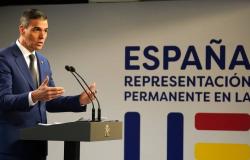
It is hard to imagine, but until well into the 1980s, most economists considered man a completely rational being. People make decisions based on well-understood self-interest, it was widely accepted in the economic world. It also made economics an excellent predictor of the future: anyone who put all interests together in a mathematical model could calculate what the economy would do.
This line of thinking, which is certainly not yet completely extinct, was dominant among economists until psychologist Daniel Kahneman, who died on Wednesday at the age of 90, made his appearance. He showed with his work that people often do not make rational decisions rather than make rational ones. Instinct, prejudices and emotions often play a decisive role.
Kahneman, Israeli and American, became widely known with his book Thinking, Fast and Slow (2011, Dutch title: Our fallible thinking). He called the intuitive, fast way of thinking that often plays a role in our decisions ‘system 1’. On the other hand, there is ‘system 2’, the slower, more rational and balanced side of our brain.
In 2002, Kahneman – who had never had any training in economics – was awarded the Nobel Prize in Economics for “integrating psychological research into economics, especially as it relates to human judgment and decision making in the face of uncertainty.” the Nobel Committee said at the time. Kahneman is the founder of what has become known as the school of ‘behavioral economics’.
The homo economicus
The breakthrough of behavioral economics in economics occurred in 1985, during a conference at the University of Chicago, writes The New York Times. That was special, because Chicago was a stronghold of that old way of thinking about economics, in which the calculating homo economicus was central. This is also called the “rational expectations” school.
Together with his close colleague and good friend Amos Tversky, also a psychologist, Kahneman showed during his career that people do not always act logically and consistently. They take out expensive insurance for relatively cheap devices. They spend hours in the car for a discount on a small purchase, but don’t care about the same amount of extra on a large purchase. They do not reduce their consumption if they know that their income is under pressure in the long term. They follow investment advice from someone who has been successful investing for two years, without recognizing the role of chance in investing. People also seem to be driven more by the fear of losing a certain amount of money than by the opportunity to earn the same amount (‘loss aversion’).
In the Israeli army
Daniel Kahneman was born in 1934 to Lithuanian Jews who had emigrated to France. His birthplace was Tel Aviv (then British Mandate Palestine), where his mother visited relatives. The family survived the Nazi occupation of France and then moved to British Palestine. Kahneman studied psychology in Jerusalem and served in the army of the state of Israel, founded in 1948.
In the army, writes the AP news agency, Kahneman became aware of the fallibility of human judgment. Officers thought they could identify potential talent for officer training through group assignments, in which the natural leaders would emerge naturally. When it turned out that these tests were not a good predictor of future talent at all, the army stuck with them anyway, because intuitively they seemed right. “That was the first cognitive illusion I discovered,” Kahneman would later write.
Kahneman subsequently obtained his PhD in psychology at the University of Berkeley (California) and worked alternately in the US and Israel. Since the 1990s he worked as a professor at Princeton University (New Jersey) and lived in New York. He was married to the ex-wife of his friend Tversky, who died in 1996.
Big influence
The influence of Kahneman and Tversky on the economics field cannot actually be overestimated, said Richard Thaler in 2017, a student of his and also a Nobel Prize winner. In every edition of the leading trade magazine American Economic Review there are two or three behavioral economics articles, Thaler said The Wall Street Journal. Thaler himself became widely known in 2008 with the behavioral economics book Nudgein which he and colleague Cass Sunstein show that people’s behavior (for example in the area of healthy eating) can be improved with a gentle hand.
In the last years before his death, Kahneman developed a special interest in artificial intelligence. “People will get used to the fact that judgments will be made by AI,” he said in an interview with the Greek newspaper last year Kathimerini. “In any field where AI makes decisions based on the same information as humans, AI will always make absolutely superior decisions.”
To share
Email the editor
Tags: Nobel Prize winner Daniel Kahneman economists understand people rational beings
-




